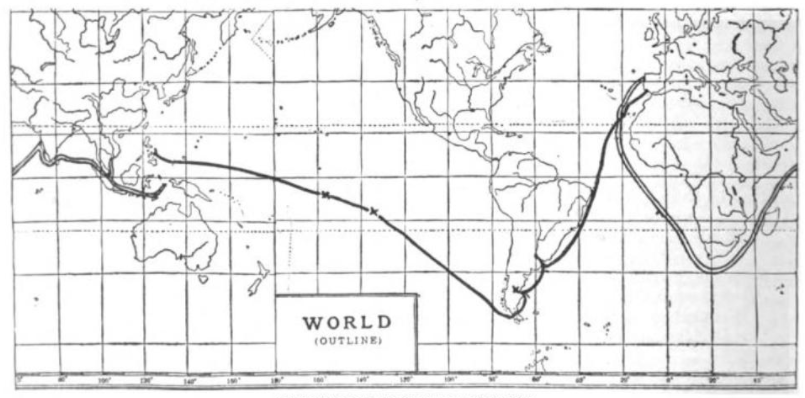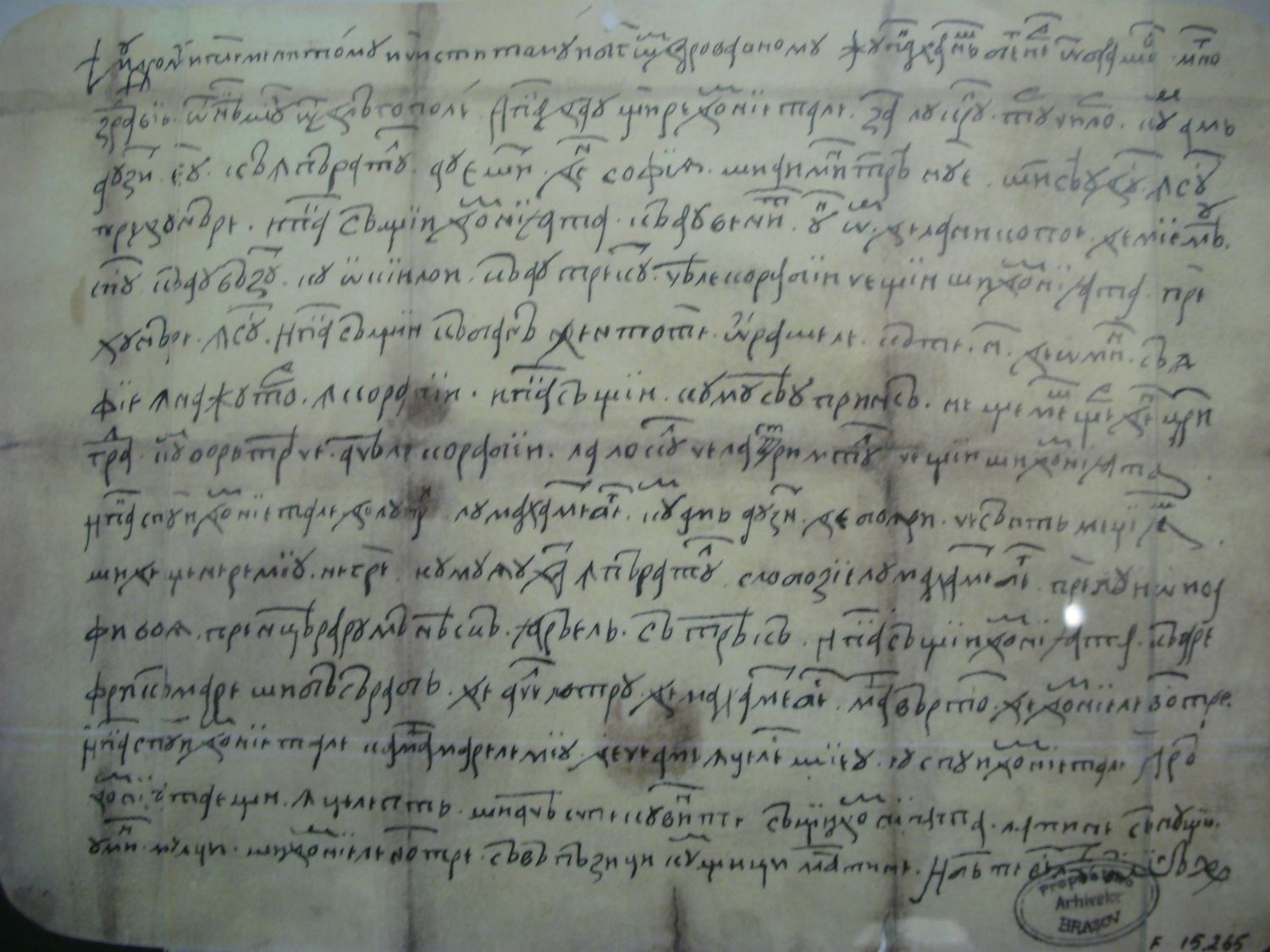|
31 March
Events Pre-1600 * 307 – After divorcing his wife Minervina, Constantine marries Fausta, daughter of the retired Roman emperor Maximian. * 1146 – Bernard of Clairvaux preaches his famous sermon in a field at Vézelay, urging the necessity of a Second Crusade. Louis VII is present, and joins the Crusade. * 1174 – A conspiracy against Saladin, aiming to restore the Fatimid Caliphate, is revealed in Cairo, involving senior figures of the former Fatimid regime and the poet Umara al-Yamani. Modern historians doubt the extent and danger of the conspiracy reported in official sources, but its ringleaders will be publicly executed over the following weeks. * 1492 – Queen Isabella of Castile issues the Alhambra Decree, ordering her 150,000 Jewish and Muslim subjects to convert to Christianity or face expulsion. * 1521 – Ferdinand Magellan and fifty of his men came ashore to present-day Limasawa to participate in the first Catholic mass in th ... [...More Info...] [...Related Items...] OR: [Wikipedia] [Google] [Baidu] |
Minervina
Minervina was either the first wife or concubine of Constantine I, and the mother of his eldest son and future ''caesar'' Crispus. Little is known of her life. Her birth and death dates are unknown. Life Constantine spent his early life in Nicomedia as a political hostage in Diocletian's court.Barnes, Constantine and Eusebius, 3; Lenski, "Reign of Constantine" (CC), 59–60; Odahl, 56–57. Constantine had a relationship with Minervina. Ancient historians Aurelius Victor and Zosimus refer to Minervina as a concubine. On the other hand, a panegyric delivered around 310 states that Constantine was married at a very early age, around the year 290. Barnes, Woods and PLRE view the panegyric as proof that Minervina was married to Constantine, while Pohlsander considers the possibility of the panegyrist not being entirely truthful. Crispus's year of birth is nowhere outright stated, she must have given birth to him before 307.Hans PohlsanderCrispus Caesar (317–326 A.D.)/r ... [...More Info...] [...Related Items...] OR: [Wikipedia] [Google] [Baidu] |
Isabella I Of Castile
Isabella I (; 22 April 1451 – 26 November 1504), also called Isabella the Catholic (Spanish: ''Isabel la Católica''), was Queen of Castile and List of Leonese monarchs, León from 1474 until her death in 1504. She was also Queen of Aragon from 1479 until her death as the wife of King Ferdinand II of Aragon, Ferdinand II. Reigning together over a Dynastic union, dynastically unified Spain, Isabella and Ferdinand are known as the Catholic Monarchs of Spain, Catholic Monarchs. Her reign marked the end of Reconquista and also the start of Spanish Empire and dominance of Spain over European Politics for the next century. After a struggle to claim the throne, Isabella reorganized the governmental system, brought the crime rate down, and unburdened the kingdom of the debt which her half-brother King Henry IV of Castile, Henry IV had left behind. Isabella's marriage to Ferdinand of Aragon in 1469 created the basis of the ''de facto'' unification of Spain. Her reforms and those she ... [...More Info...] [...Related Items...] OR: [Wikipedia] [Google] [Baidu] |
Oliver Cromwell
Oliver Cromwell (25 April 15993 September 1658) was an English statesman, politician and soldier, widely regarded as one of the most important figures in British history. He came to prominence during the Wars of the Three Kingdoms, initially as a senior commander in the Parliamentarian army and latterly as a politician. A leading advocate of the execution of Charles I in January 1649, which led to the establishment of the Commonwealth of England, Cromwell ruled as Lord Protector from December 1653 until his death. Although elected Member of Parliament (MP) for Huntingdon in 1628, much of Cromwell's life prior to 1640 was marked by financial and personal failure. He briefly contemplated emigration to New England, but became a religious Independent in the 1630s and thereafter believed his successes were the result of divine providence. In 1640 he was returned as MP for Cambridge in the Short and Long Parliaments. He joined the Parliamentarian army when the First Engl ... [...More Info...] [...Related Items...] OR: [Wikipedia] [Google] [Baidu] |
Humble Petition And Advice
The Humble Petition and Advice was the second and last codified constitution of England after the Instrument of Government. On 23 February 1657, during a sitting of the Second Protectorate Parliament, Sir Christopher Packe, a Member of Parliament and former Lord Mayor of London (chosen by those supporting Kingship as he was a less controversial character than the leaders of the Kingship party), presented the Lord Protector Oliver Cromwell with a remonstrance which became known as the Humble Petition and Advice.Lee,p. 991 (see also DNB xliii 30) Although he presented it, Packe was not the author.Cowardp. 87 /ref>Fritzep. 237/ref> The remonstrance came about largely as a result of the rise of the New Cromwellians, many of whom were moderate Presbyterians like Edward Montagu. They in themselves were an expression of strong latent support for monarchy and the English traditional constitutional limits on its power, a desire to lose the military overtones of the earlier Protectorat ... [...More Info...] [...Related Items...] OR: [Wikipedia] [Google] [Baidu] |
Long Parliament
The Long Parliament was an Parliament of England, English Parliament which lasted from 1640 until 1660, making it the longest-lasting Parliament in English and British history. It followed the fiasco of the Short Parliament, which had convened for only three weeks during the spring of 1640 after an Personal Rule, 11-year parliamentary absence. In September 1640, Charles I of England, King Charles I issued writs summoning a parliament to convene on 3 November 1640.This article uses the Julian calendar with the start of year adjusted to 1 January – for a more detailed explanation, see Old Style and New Style dates#Differences between the start of the year, old style and new style dates: differences between the start of the year. He intended it to pass financial bills, a step made necessary by the costs of the Bishops' Wars against Kingdom of Scotland, Scotland. The Long Parliament received its name from the fact that, by Act of Parliament, it stipulated it could be dissolved only ... [...More Info...] [...Related Items...] OR: [Wikipedia] [Google] [Baidu] |
1657
Events January–March * January 8 – Miles Sindercombe and his group of disaffected Levellers are betrayed in their attempt to assassinate Oliver Cromwell by blowing up the Palace of Whitehall in London and are arrested. * January 29 – Rule of the Major-Generals (regional military government) in England is abolished. * February 4 – Resettlement of the Jews in England: Oliver Cromwell gives Antonio Fernandez Carvajal the assurance of the right of Jews to remain in England. * February 23 – In England, the '' Humble Petition and Advice'' offers Lord Protector Cromwell the crown. * March 2 – The Great Fire of Meireki in Edo, Japan, destroys most of the city and damages Edo Castle, killing an estimated 100,000 people. * March 23 – Anglo-Spanish War (1654–60): By the Treaty of Paris, France and England form an alliance against Spain; England will receive Dunkirk. April–June * April 20 ** Anglo-Spanish War – Batt ... [...More Info...] [...Related Items...] OR: [Wikipedia] [Google] [Baidu] |
Limasawa
Limasawa, officially the Municipality of Limasawa ( Cebuano: ''Lungsod sa Limasawa''; Filipino: ''Bayan ng Limasawa''), is an island municipality in the province of Southern Leyte, Philippines. According to the 2020 census, it has a population of 6,191 people, making it the least populated town in the province. History Limasawa was the second island (after Suluan) of the Philippines that the Magellan Expedition landed on. Antonio Pigafetta documented the island as "Mazaua". He described it as being inhabited with cultivated fields. In March 28, 1521 the Magellan Expedition met with two rulers, Rajah Colambu and Rahah Siaui, of the Rajahnate of Butuan and "Calagan" (Caraga), which Pigafetta misidentified as islands. The rulers were on a hunting expedition on Limasawa (which were under their domain) with two ''balangay'' ships. The rulers entertained Magellan's crew with feasting for a few days. Afterwards, Father Pedro de Valderrama performed the first mass in the Philippine ... [...More Info...] [...Related Items...] OR: [Wikipedia] [Google] [Baidu] |
Ferdinand Magellan
Ferdinand Magellan ( – 27 April 1521) was a Portuguese explorer best known for having planned and led the 1519–22 Spanish expedition to the East Indies. During this expedition, he also discovered the Strait of Magellan, allowing his fleet to pass from the Atlantic into the Pacific Ocean and perform the first European navigation to Asia via the Pacific. Magellan was killed in battle in the Philippines and his crew, commanded by the Spanish Juan Sebastián Elcano, completed the return trip to Spain in 1522 achieving the first circumnavigation of Earth in history. Born around 1480 into a family of minor Portuguese nobility, Magellan became a skilled sailor and naval officer in service of the Portuguese Crown in Asia. King Manuel I refused to support Magellan's plan to reach the Moluccas, or Spice Islands, by sailing westwards around the American continent. Magellan then proposed the same plan to King Charles I of Spain, who approved it. In Seville, he married, fathere ... [...More Info...] [...Related Items...] OR: [Wikipedia] [Google] [Baidu] |
1521
1521 ( MDXXI) was a common year starting on Tuesday of the Julian calendar, the 1521st year of the Common Era (CE) and ''Anno Domini'' (AD) designations, the 521st year of the 2nd millennium, the 21st year of the 16th century, and the 2nd year of the 1520s decade. Events January–March * January 3 – Pope Leo X excommunicates Martin Luther, in the papal bull '' Decet Romanum Pontificem''. * January 22 – Charles V, Holy Roman Emperor, opens the Diet of Worms in Worms, Germany. * January 27 – Suleiman the Magnificent suppresses a revolt by the ruler of Damascus, Janbirdi al-Ghazali. * February 2 – The Nydala Abbey Bloodbath takes place at Nydala Abbey, Sweden; the abbot and many monks are murdered by Danes. * March 6 ** Ferdinand Magellan makes the first European contact with Guam, most likely landing in Tumon. ** Martin Luther is summoned to appear before the Diet of Worms. * March 16 – Ferdinand Magellan reaches the Philippines, in ea ... [...More Info...] [...Related Items...] OR: [Wikipedia] [Google] [Baidu] |
Christianity
Christianity is an Abrahamic monotheistic religion, which states that Jesus in Christianity, Jesus is the Son of God (Christianity), Son of God and Resurrection of Jesus, rose from the dead after his Crucifixion of Jesus, crucifixion, whose coming as the Messiah#Christianity, messiah (Christ (title), Christ) was Old Testament messianic prophecies quoted in the New Testament, prophesied in the Old Testament and chronicled in the New Testament. It is the Major religious groups, world's largest and most widespread religion with over 2.3 billion followers, comprising around 28.8% of the world population. Its adherents, known as Christians, are estimated to make up a majority of the population in Christianity by country, 157 countries and territories. Christianity remains Christian culture, culturally diverse in its Western Christianity, Western and Eastern Christianity, Eastern branches, and doctrinally diverse concerning Justification (theology), justification and the natur ... [...More Info...] [...Related Items...] OR: [Wikipedia] [Google] [Baidu] |






